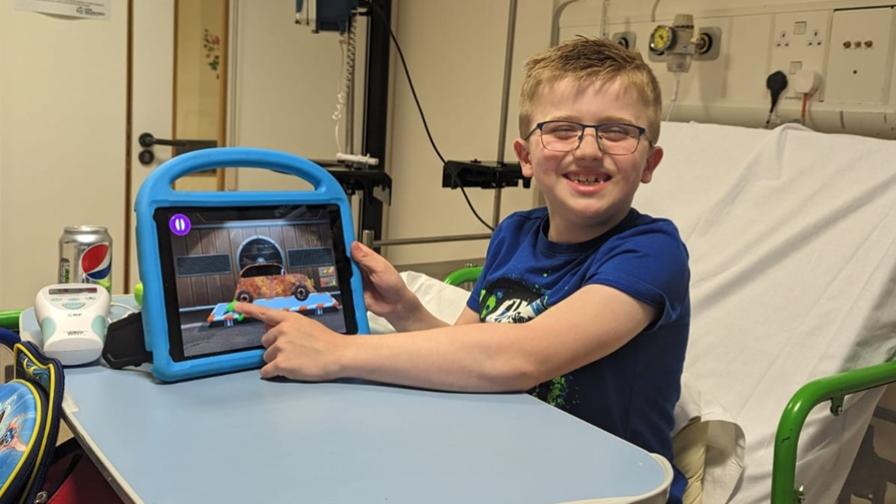
Digby, who has Duchenne muscular dystrophy
Predicting spine fractures in children with Duchenne muscular dystrophy
In the UK, around 100 boys are born with Duchenne muscular dystrophy (DMD) each year. This genetic condition causes progressive muscle weakness and wasting. Children with DMD are also at higher risk of osteoporosis, a condition where bones weaken – and can fracture more easily.
Dr Sarah McCarrison, at the Royal Hospital for Children Glasgow, is developing a tool to help predict spine fractures in young people with DMD. Her goal is to enable more personalised care, with earlier treatment to help prevent fractures in those most at risk, while sparing others from the potential side effects of unnecessary medications.
Investigating the underlying causes of Rasmussen’s encephalitis, a rare childhood brain inflammation
Rasmussen’s encephalitis (RE) is a devastating condition that can affect previously healthy children. It usually affects one side of the brain, leading to severe drug-resistant seizures. Other symptoms include progressive learning difficulties and weakness of one side of the body, often leading to paralysis.
Sadly, there’s currently no cure – instead, the goal of treatment is to manage the symptoms and inflammation. The only way to stop seizures and prevent further mental decline is a major brain surgery. However, this too can have life-changing consequences.
Dr Eva Ioannidou, at UCL Great Ormond Street Institute of Child Health, aims to deepen understanding of the underlying mechanisms driving this very rare condition. Her findings will have the potential to lead to earlier diagnosis, while also providing important new clues for developing new treatments.
This project is jointly funded with the British Paediatric Neurology Association (BPNA).
Improving the assessment of pain in babies following surgery
Experiencing unmanaged pain in early life can have long-term impacts on brain development. But monitoring pain in very young babies is difficult, meaning it can be under-detected and therefore undertreated.
Dr Roshni Mansfield, at the University of Oxford, will be using artificial intelligence (AI) and machine learning to develop an automated system for monitoring babies' pain.
This will use video, audio and vital signs collected from infants after a hernia operation. She will then study whether automated clinical pain scores change after the administration of paracetamol post-surgery. Parents will also be included in this research, so as to understand their perspectives of their infant’s pain and of pain assessment methods.
